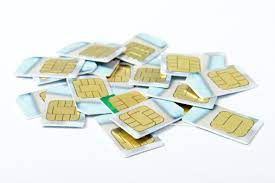In a bid to protect consumers and prevent potential financial risks, the House of Representatives in Nigeria has issued a stern warning to major telecom network providers, including MTN, GLO, Airtel, and others.
The warning comes in response to the alarming practice of reselling already purchased Subscriber Identity Module (SIM) cards to new subscribers after months of unuse. The House has mandated its Committee on Telecommunications (once constituted) to engage with the Global System for Communication (GSM) to address this issue effectively.
The motion, put forward by Boniface Sunday Emerengwa during the recent plenary, highlighted the significance of the Global Service for Mobile Communication (GSM) in Nigeria. Introduced in 2001 with Econet (now Airtel) and MTN as the pioneering providers, GSM revolutionized the country’s communication landscape.
Nigerians gained access to a plethora of services that were previously unimaginable, such as Mobile Banking Services, bringing considerable improvements to the business environment and facilitating ease of doing business in the nation.
Read also: Nigerian Mobile Carriers Block 75 Million Unlinked SIM Cards
The Importance of SIM Registration
The motion emphasized the importance of SIM registration, which began in April 2010 as directed by the Nigerian Communications Commission (NCC). The objective was to track subscribers and prevent potential misuse of SIM cards. During the registration process, individuals provide personal information and undergo biometric scans, and these details are stored in the SIM by the service provider.
One disturbing practice that has come to light is the reselling of SIM cards that have been paid for by individuals but remain inactive for six months. The repercussions of this reselling are far-reaching. When a new subscriber registers a pre-registered SIM, the details of the previous subscriber can still be accessed through applications like True Caller. This exposes users to privacy risks and potential financial fraud.
Potential Risks for Customers
The repercussions of reselling SIM cards extend beyond just privacy concerns. In some cases, bank alerts intended for the original subscriber are redirected to the new subscriber, and vice-versa. This mix-up creates significant financial risks for customers, leaving them vulnerable to fraudulent activities, especially under the growing prevalence of scams perpetrated by individuals known as ‘Yahoo boys’ and other malicious actors.
Recognizing the severity of the issue, the House of Representatives has taken decisive action. They have given the Committee on Telecommunications two weeks to engage with GSM providers and devise effective measures to combat the resale of purchased SIM cards. The committee is expected to present its findings and recommendations for further legislative action to safeguard consumers and protect their financial interests.
As the telecommunications industry continues to play a crucial role in Nigeria’s development and daily lives, it is essential to address practices that put consumers at risk. The warning issued by the House of Representatives serves as a significant step towards protecting individuals from potential financial and privacy-related hazards. By curbing the reselling of already purchased SIM cards, the authorities can ensure a safer and more secure telecommunications landscape for all citizens.




